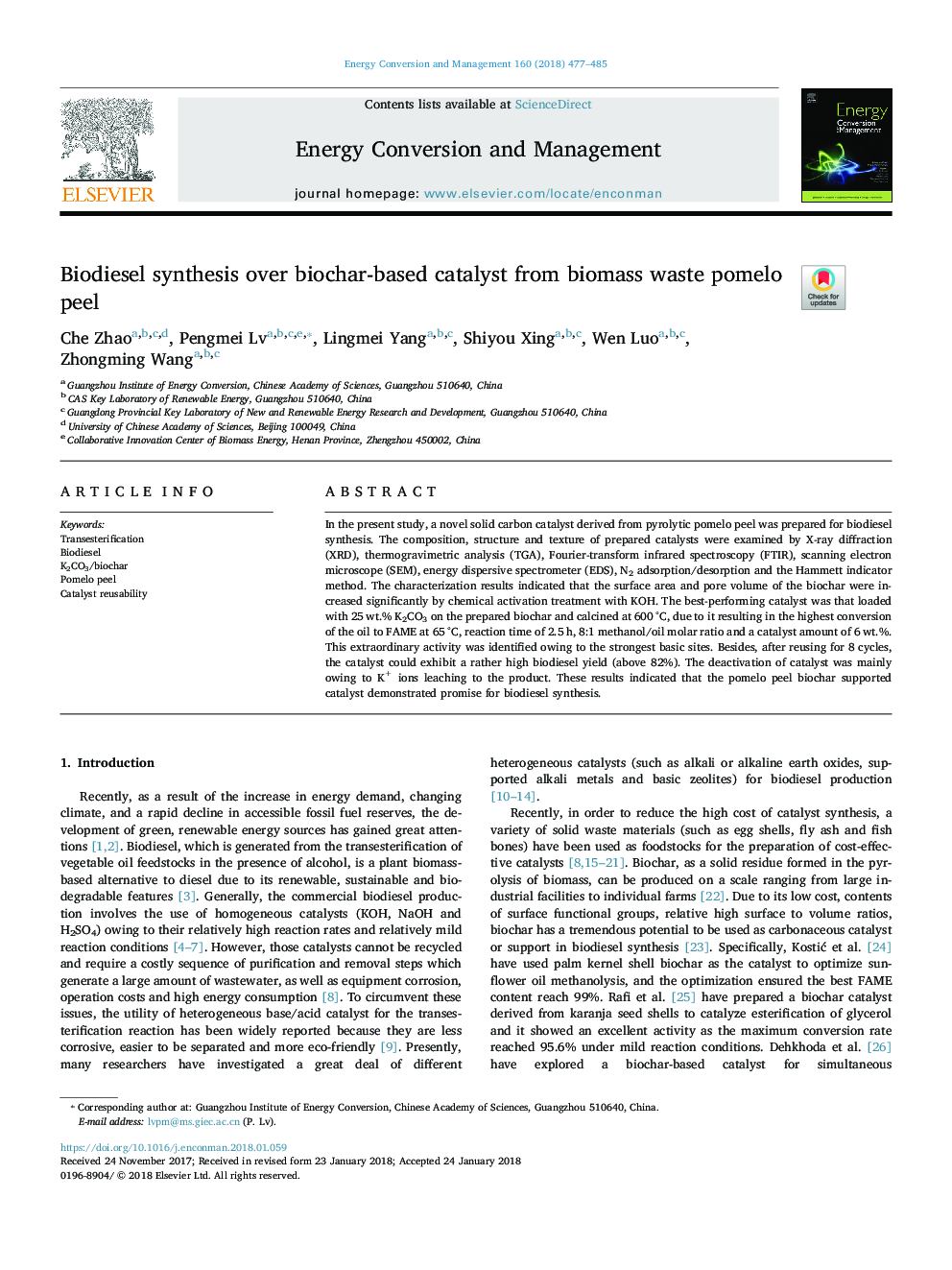| Article ID | Journal | Published Year | Pages | File Type |
|---|---|---|---|---|
| 7158976 | Energy Conversion and Management | 2018 | 9 Pages |
Abstract
In the present study, a novel solid carbon catalyst derived from pyrolytic pomelo peel was prepared for biodiesel synthesis. The composition, structure and texture of prepared catalysts were examined by X-ray diffraction (XRD), thermogravimetric analysis (TGA), Fourier-transform infrared spectroscopy (FTIR), scanning electron microscope (SEM), energy dispersive spectrometer (EDS), N2 adsorption/desorption and the Hammett indicator method. The characterization results indicated that the surface area and pore volume of the biochar were increased significantly by chemical activation treatment with KOH. The best-performing catalyst was that loaded with 25â¯wt.% K2CO3 on the prepared biochar and calcined at 600â¯Â°C, due to it resulting in the highest conversion of the oil to FAME at 65â¯Â°C, reaction time of 2.5â¯h, 8:1 methanol/oil molar ratio and a catalyst amount of 6â¯wt.%. This extraordinary activity was identified owing to the strongest basic sites. Besides, after reusing for 8 cycles, the catalyst could exhibit a rather high biodiesel yield (above 82%). The deactivation of catalyst was mainly owing to K+ ions leaching to the product. These results indicated that the pomelo peel biochar supported catalyst demonstrated promise for biodiesel synthesis.
Related Topics
Physical Sciences and Engineering
Energy
Energy (General)
Authors
Che Zhao, Pengmei Lv, Lingmei Yang, Shiyou Xing, Wen Luo, Zhongming Wang,
